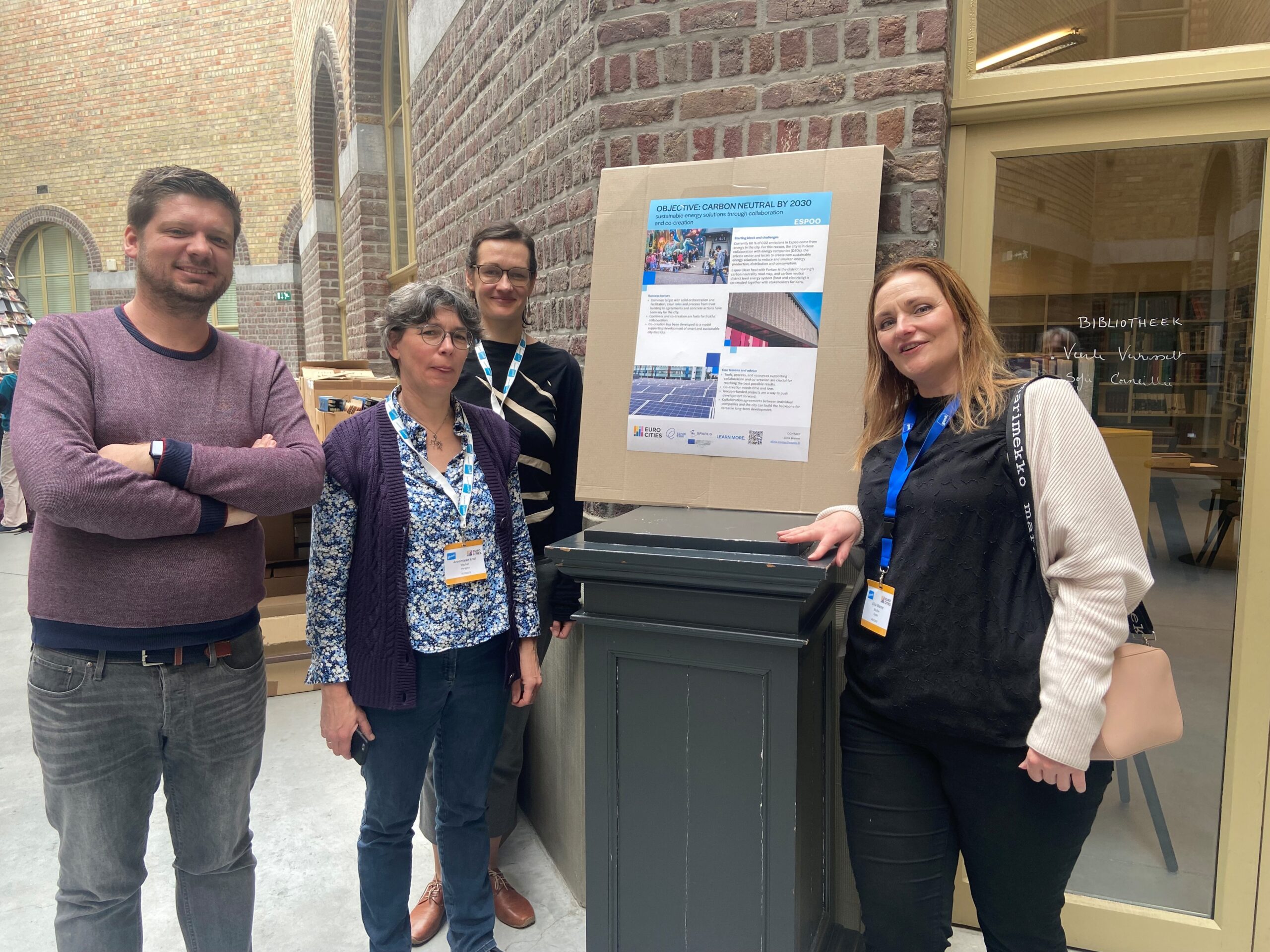SPARCS results presented at Eurocities Environment Forum in Ghent
Eurocities’ annual environment forum was held in beautiful city of Ghent, Belgium at the end of April (26-28 April). This year the theme of the forum was “Powering our cities”. Urgency for significant changes in how we produce and consume energy in Europe is now recognized, and it is not just because of climate change but also because of Russia’s invasion of Ukraine escalating into global energy crisis.
There were over 200 participants from European cities sharing and learning from each other, but also hearing about newest development of European level regulation and valuable industry representative views.
Environment forum provided participants both common presentations as well as working group meetings. Climate change and energy efficiency have been part of the Forum as its own working group for couple of years, other working groups include Green Areas and Biodiversity, Noise, Waste and Food.
Forum participants were provided tours to sustainable districts. Very interesting visit was to newly developed district De Nieuwe Dokken, a sustainable residential area on the Schipperskaai. The project features about 400 homes, a school, a daycare centre, and a sports hall with innovative system that closes and connects energy, water, and waste cycles.
Regarding energy citizenship one topic was presented, discussed, workshopped and even visited. It is the one-stop-shop for energy, meaning energy advising for residents, which may become compulsory for cities in EU.
From Espoo point of view the forum is the place to be to network, to share and learn, to hear about the latest from different stakeholders. And visiting sites instead of just hearing or reading makes the difference. On the last day of the forum, Elina Wanne shared Espoo and SPARCS learnings and experiences in collaboration as one of the city show cases e.g. co-creation model for smart and sustainable district development.
Eurocities is the network of more than 200 cities in 38 countries, representing 130 million people, working together to ensure a good quality of life for all.


